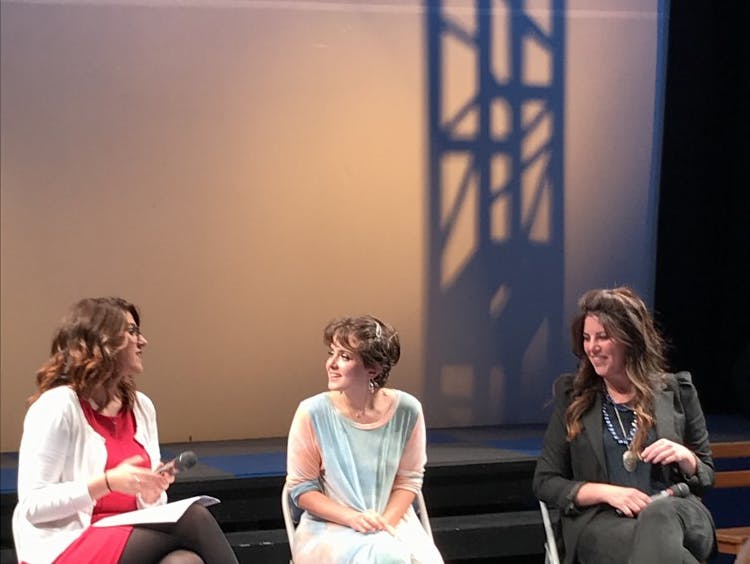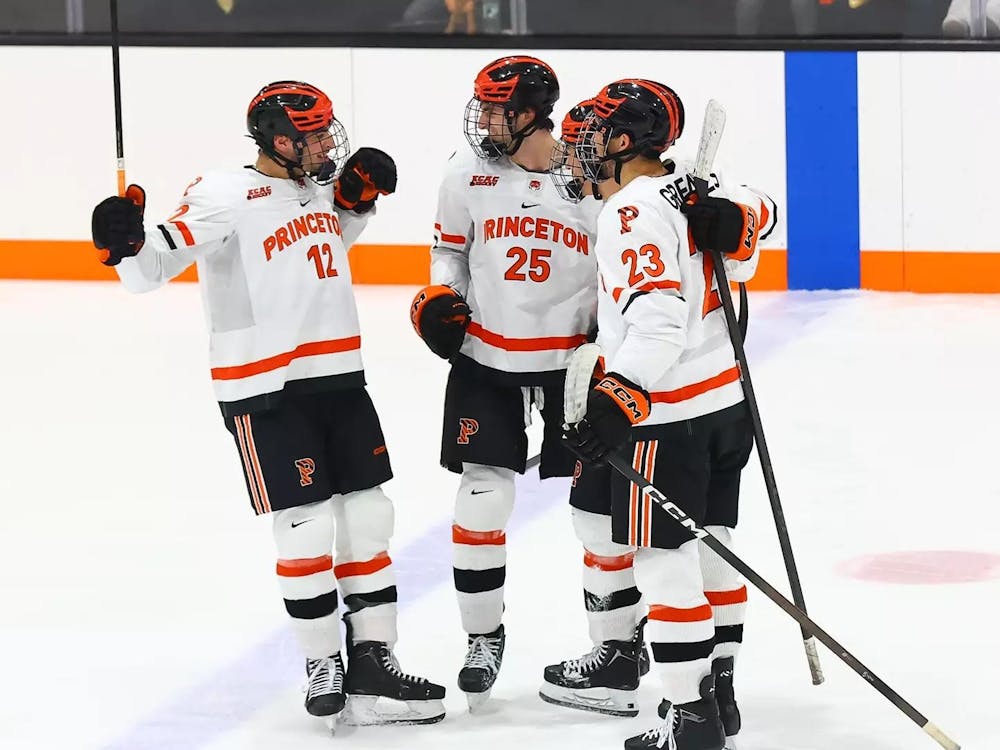On Oct. 26, the Princeton Day School Theater put on its first show of “Girls Like That,” a play by Evan Placey that explores the complex gender dynamics in modern adolescence. After the play, activist Monica Lewinsky hosted a talkback with the audience to discuss her own experiences with cyberbullying.
The play depicts a schoolgirl named Scarlett and her struggle to navigate her high school’s social scene after an unnamed individual texts a nude photograph of her to all her classmates. Instead of protecting Scarlett, her classmates pelt her with sexual epithets, while they treat a boy whose naked picture is also circulated with leniency and even admiration.
The storyline emphasizes how the supposedly strong bond between the thirteen schoolgirls, who attended school together from the age of five until graduation, degrades into bullying and shaming.
The play was shown at Princeton Day School, to a packed audience that filled McAneny Theater’s 135 seats. Director Stan Cahill created an immersive experience with audience members sitting on the stage and actors weaving in and out of the audience during dance sequences.
Nate Jones, who played one of the boys in “Girls Like That,” emphasized the importance of the play’s message.
“This show is so important for not only our Princeton Day School community, but for high school culture all across the world,” Jones wrote in a text. “It is provocative, jolting, even uncomfortable, and it stimulates a conversation that is so often ignored.”
Max Miller, the actor playing Scarlett’s main tormentor, discussed having to deal with such an emotionally taxing role and how it affected him as an individual.
“The show made me feel more conscious about what kind of person I shouldn’t be,” Miller said. “I hope that the message serves as a warning light to other men.”

Immediately following the play, activist Monica Lewinsky took the stage to discuss the implications of cyberbullying and harassment.
Lewinsky discussed her own experiences with cyberbullying and sexual shaming. She said that the growth of social media has made the effects of bullying more dangerous, increasing the need for more accountability and awareness in everyday actions.
“There’s no border on the internet,” Lewinsky said.
Lewinsky said that she was particularly struck by the exacerbating effects of social media on cyberbullying after the suicide of Tyler Clementi, a student at Rutgers University. Clementi’s roommate had used his laptop’s webcam to record a video of Clementi kissing another man and posted a tweet about the incident. Lewinsky’s mother was deeply affected by the death, which inspired Lewinsky to become more involved in anti-cyberbullying activism.

Sara Chopra, the props master for the show, expressed her gratitude to Lewinsky for coming to discuss cyberbullying’s implications.
“Her presence and remarks made our show’s message real,” Chopra wrote in a text. “These things happen in our community. They could happen to one of us.”
She challenged the audience to actively reflect upon how they impact the world, either as active individuals or bystanders.
“Where do we contribute in that way?” Lewinsky asked. “How are we spectators to what is happening in our world?”
Lewinsky demonstrated appreciation for the rare moments of kindness that she received after her involvement in the international political scandal that engulfed the Clinton administration in the late 1990s.
“When people show you compassion or empathy, it scratches away at the shame,” Lewinsky said.
Lewinksy has been an outspoken advocate against cyberbullying and she discussed her experiences with it in at the Forbes 30 Under 30 summit in October 2014. Since then, she has delivered a TED talk advocating for a compassionate internet culture and written the introduction to a recent book about cyberbullying.
She has also served as an ambassador for Bystander Revolution, an anti-bullying organization, since 2015. Her appearance at the school was in recognition of National Bullying Prevention Month.








